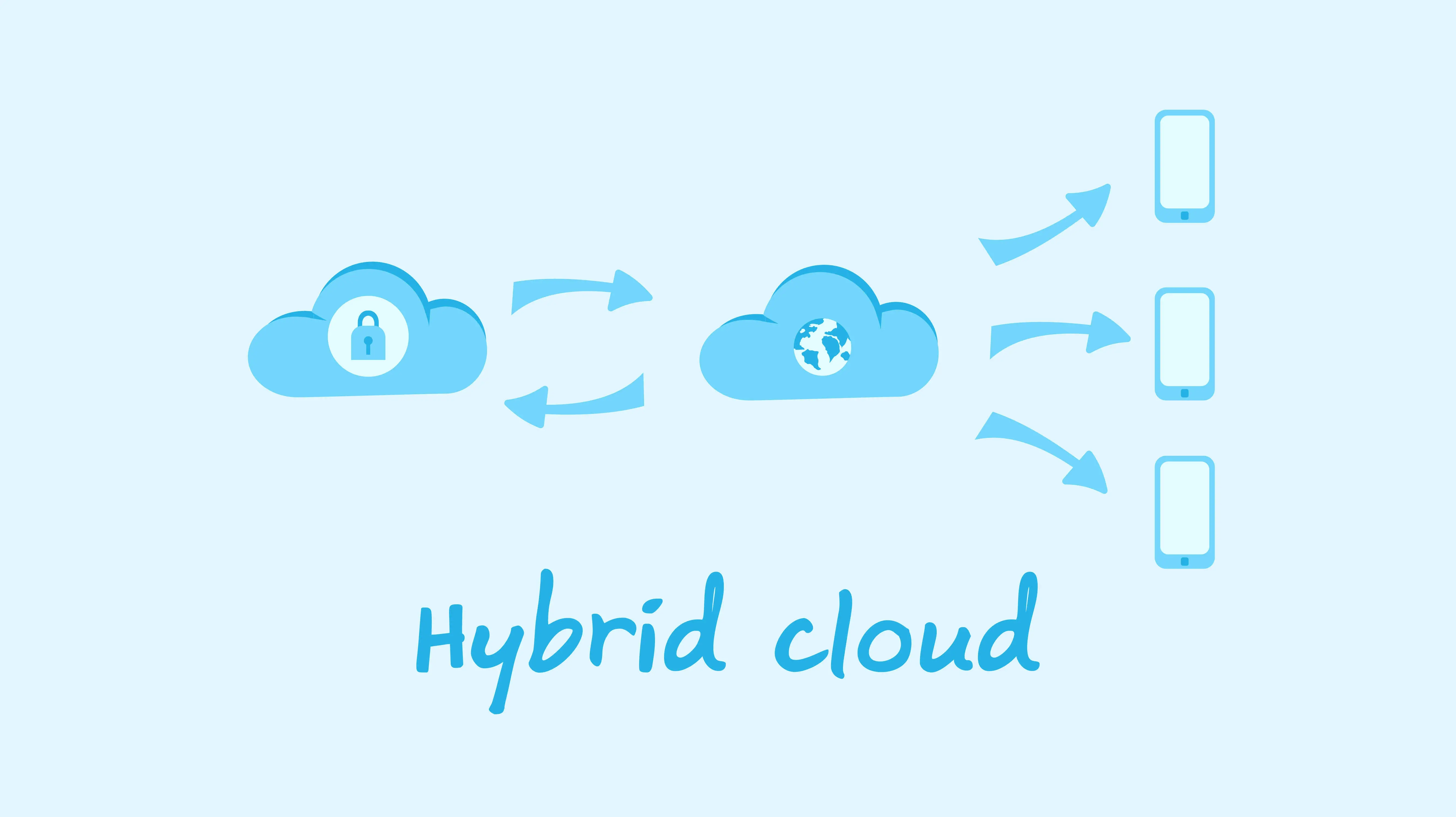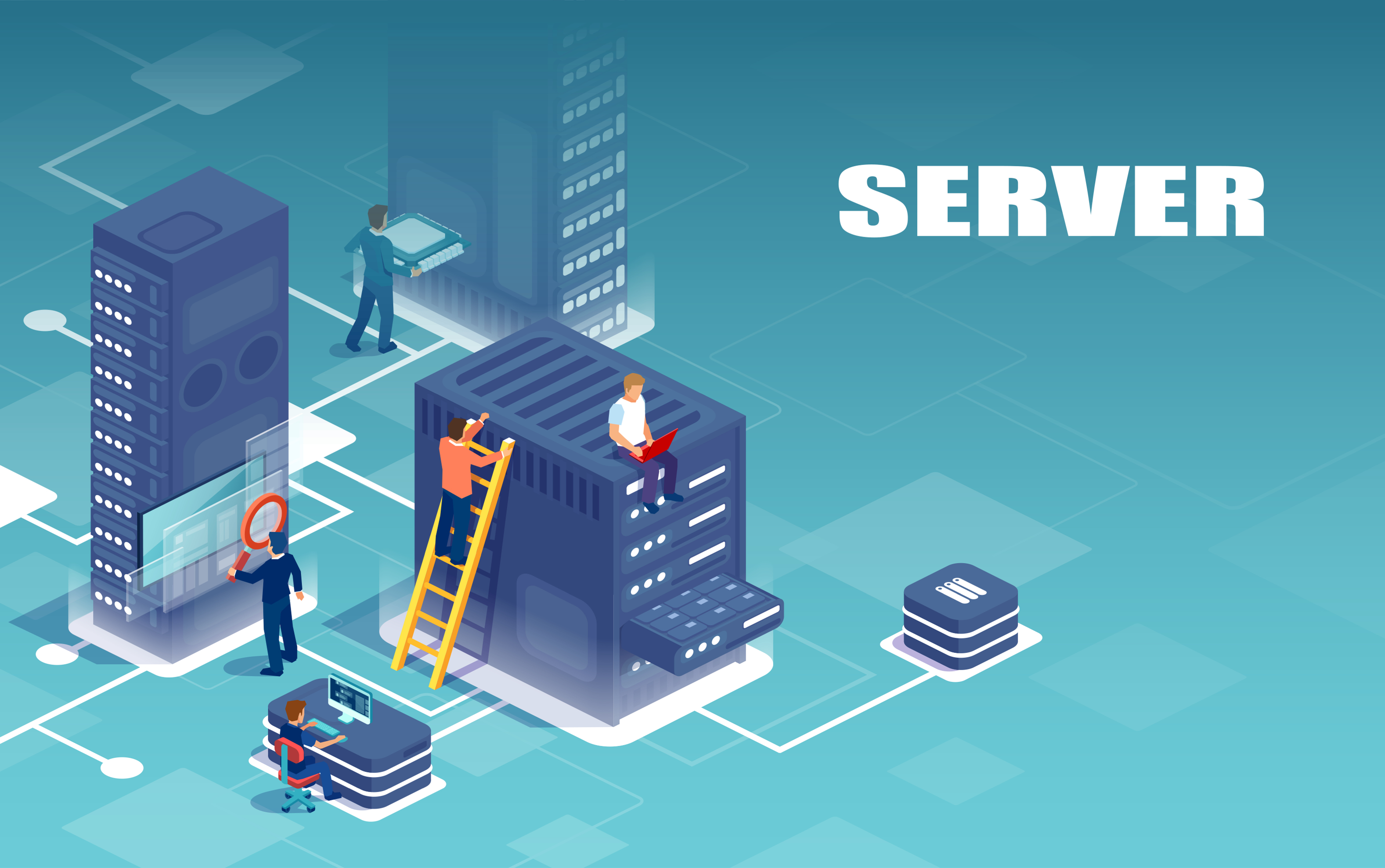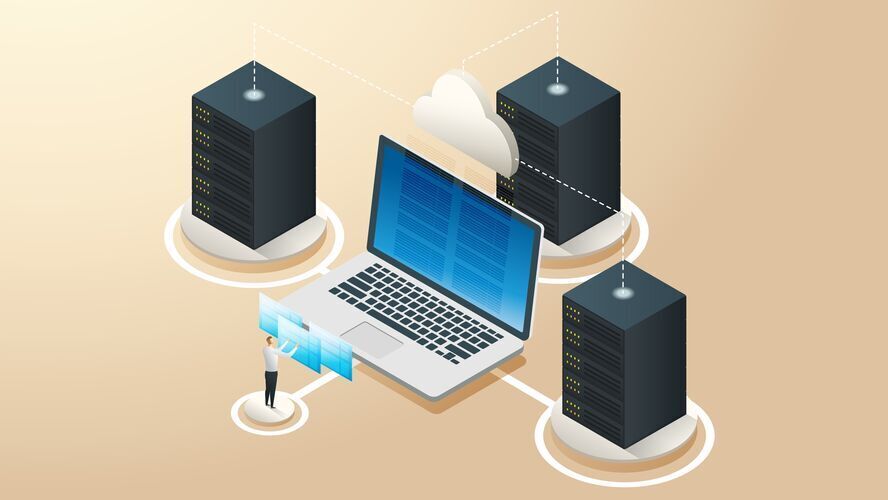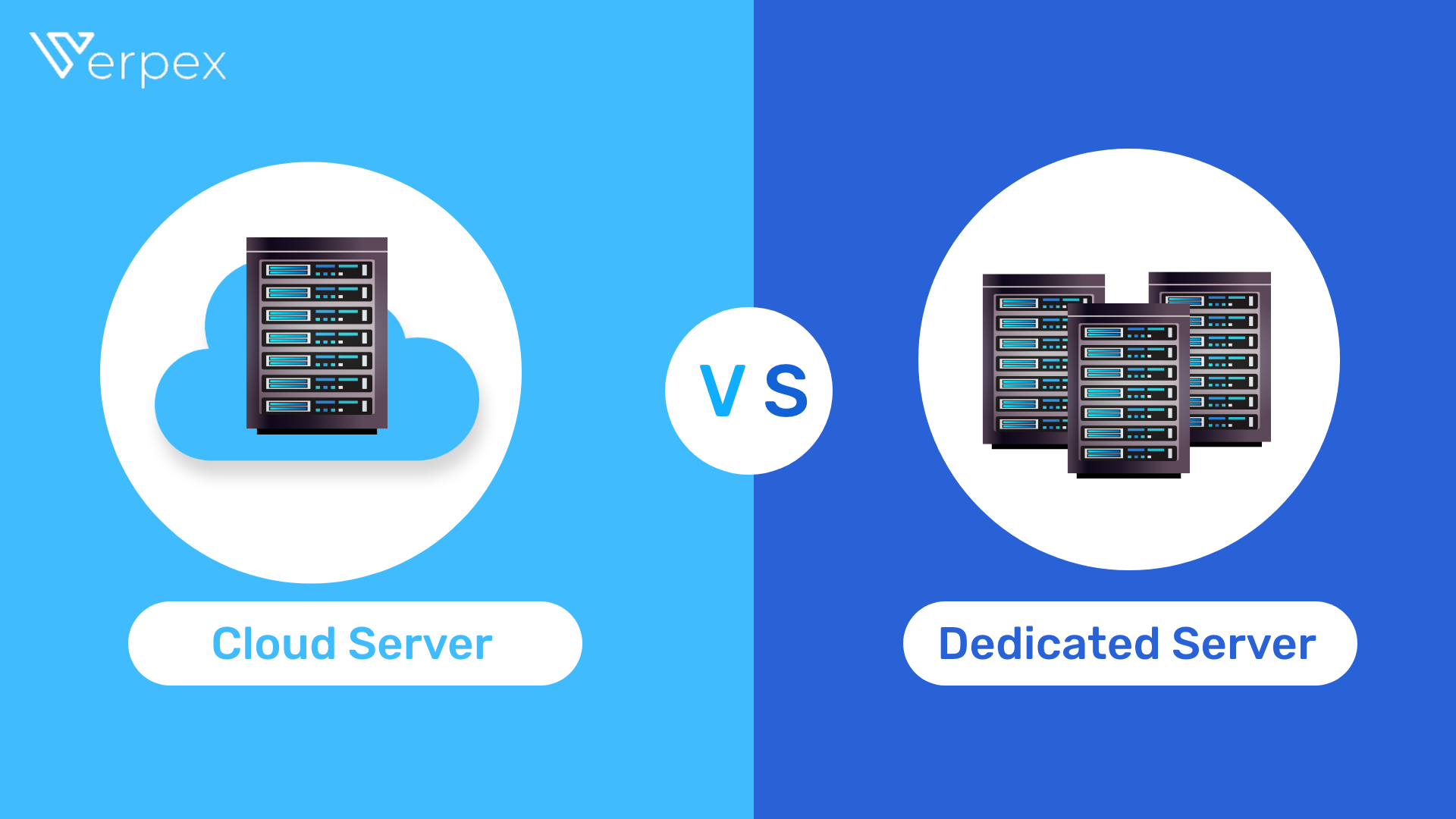When it comes to hosting solutions, dedicated and cloud servers are two different sides of the same coin.
This article covers everything you need to know about how dedicated servers compare to cloud servers.
What Is a Dedicated Server?
A Dedicated Server is a hosting solution that provides your website with its own space (disk space) and resources in a private server.
What is a Cloud Server?
A Cloud Server is an efficient and affordable hosting option that uses multiple servers for flexible processing power during high traffic.
Dedicated Server Vs. Cloud Server: An Overview
Common Features
Fast and efficient: Both solutions ensure quick site performance.
Handles traffic well: Cloud scales for traffic spikes; dedicated offers high bandwidth.
Suitable for big businesses: Both are great options for large websites and companies.
Differences
Cost: Dedicated servers are pricier but offer more processing power than cloud solutions.
Scalability: Cloud hosting easily scales to meet demand, while dedicated hosting requires extensive preparation.
Customization: Cloud solutions are mostly managed and stress-free, but dedicated servers allow more customization.
Comparing Cloud and Dedicated Servers
| Dedicated Server | Cloud Server | Verdict | |
|---|---|---|---|
| Resource Efficiency | All resources are exclusively yours on a private server. Requires planning for resource adjustments. | Cloud server hosting excels in resource allocation. Uses multiple servers for efficient website performance. | Cloud servers' robust flexibility ensures top performance with abundant resources. |
| Performance | Dedicated servers deliver strong performance with powerful processors. Risk of site downtime if the server fails. | Cloud hosting offers impressive site loading speeds. Provides redundant servers for reliability. | Both solutions promise good performance. But cloud servers take the top spot for their resilience against server failures. |
| Traffic Volume | Dedicated servers are designed to handle large traffic volumes. Ideal for big enterprise websites with extensive eCommerce. | Cloud servers flexibly manage traffic spikes and can handle nearly as much traffic as dedicated options. | It's close, but dedicated servers edge out with their higher capacity to handle web traffic. |
| Security Offerings | Dedicated servers offer robust security features. Lower risk due to exclusive server use. | Cloud hosting security can be challenging. Managed services offer expert security support. | In terms of security, managed cloud server solutions stand out. They offer strong security that requires minimal effort to master. |
| User Control and Customization | Dedicated servers offer extensive customization, allowing you to install any software or OS for your websites. | Cloud options usually offer less control, leading most users to choose managed services. | Dedicated servers take the lead for full adaptability to your needs. |
| Server Administration and Management | You're in charge of all server administration. Requires manual application of security patches and updates. | The cloud provider handles maintenance while users adjust virtual resources. The hosting provider manages administration and technical fixes. | Managed cloud hosting is user-friendly and offloads admin tasks to the data host, freeing you for more important work. |
| Scalability | Dedicated servers have high processing power for large traffic. Scaling up requires advanced planning for more bandwidth. | Cloud hosting spreads resources across many servers in the hosting environment. Allows easy scaling up of processing power as needed. | Websites on cloud hosting can easily scale with access to a vast pool of server resources. |
| Cost Considerations | Dedicated servers aren't cheap. Basic models start at $70 - $100 monthly, while complex ones can cost hundreds to thousands of dollars. | Cloud hosting offers flexible pricing, charging only for the bandwidth used, with many reasonable deals available. | Cloud servers easily outdo dedicated hosting in affordability. |
| Technical Knowledge Requirements | Operating a dedicated server requires significant technical knowledge. They are often used by large organizations with in-house IT teams. | Managed cloud servers eliminate the need for technical management. The cloud provider offers full support, including support for web dev. | Cloud server solutions are beginner-friendly. If you want to get set up quickly, then we highly recommend cloud servers. |
| Customer Support Quality | In terms of customer service, you're mostly self-reliant. The data host maintains the physical server, but you handle most other aspects of the site. | Managed cloud hosting offers round-the-clock expert support, with teams committed to fast issue resolution under service agreements. | Cloud server customer service quality is significantly better, ensuring you’re well-supported. |
Managed Vs. Unmanaged Hosting

Admin Responsibility
With an unmanaged service, you handle multiple virtual servers and troubleshoot issues. Managed services, however, take care of it all, easing the stress of website management.
Security
Suppose you’re using unmanaged hosting, you must set up your security and choose software or plugins. Managed options handle all security, ensuring everything is updated.
Customer Support
Both hosting types provide good customer support but managed services offer more comprehensive help.
They work under contract-defined resolution times. Unmanaged are usually less involved.
Service Cost
Managed hosting costs more as the data host handles most admin and maintenance tasks. Yet, it's often worth it, particularly for those lacking technical expertise.
Cloud-Dedicated Hybrid Hosting

If you want the low cost and flexibility of cloud hosting with the power of a dedicated server, consider cloud dedicated hosting.
These hybrid servers offer a segment of a dedicated server shared with a few users, ensuring your resources remain yours.
It's more affordable than full dedicated hosting but provides a processing power boost, making it ideal for medium-sized businesses growing into larger ones.
Making the Switch Between Hosting Types

You want flexibility
If your site struggles with frequent traffic spikes, a managed cloud solution with its flexibility would likely benefit you.

You have large traffic requirements
If have a site that hosts thousands of daily visitors, dedicated hardware might be worth considering to manage the bandwidth strain.

To save money
Choosing cloud or shared hosting is more cost-effective than going for a hybrid or dedicated solution.

You only have a small website
If you have a small site or one with little traffic, a shared hosting plan is ideal and requires no technical skills to start.
Comparing Other Types of Web Hosting
Dedicated Server Vs. VPS
VPS hosting offers a balance, with more power than cloud hosting yet less flexibility than dedicated hosting.


Dedicated Server Vs. Shared Hosting
Shared hosting and dedicated hosting cater to very different needs. Shared hosting is quick and affordable — best for small websites. Dedicated servers are powerful and designed for larger organizations.
Compliance in Cloud and Dedicated Hosting
Knowing the data sovereignty laws and how they translate to your hosting solution is vital.
Here's a quick breakdown of what’s important:
Dedicated Hosting
Your data is in one known location.
Easier to comply with laws but less flexible.
Cloud Hosting
Your data moves across borders.
Offers flexibility but with complex legal questions.
Advanced Protocols for Dedicated and Cloud Servers

Your online security is only as strong as its weakest link. Here's a simplified guide to security for different server types:
Dedicated Servers
- Focus on physically securing the server and its software.
- Build a strong defense against attacks.
Cloud Servers
- Prioritize virtual server security measures.
- Stay alert to new threats.
Both Server Types (Hybrid)
- Use advanced security protocols.
- Implement intrusion detection, DDoS mitigation, and AI monitoring.
- Stay updated with the latest encryption and firewall settings.
- Aim for a multi-layered security approach to keep data safe.
Cloud Server Vs. Dedicated Server in the Gaming Industry
Server performance is key in online gaming.
Let's quickly compare dedicated and cloud servers:
Dedicated Servers
Ideal for serious gaming
Offer control, customization, and performance
Provide a stable, lag-free environment
Cloud Servers
A new option in gaming
Offer scalable resources and lower costs
Summary
Managed cloud hosting is highly praised and increasingly popular for its flexibility and reasonable cost, perfect for various websites.
Additionally, cloud hosting is continually improving, handling more traffic each day.
Dedicated hosting, however, is generally recommended only for very large corporations with substantial bandwidth needs.
Frequently Asked Questions
How easy is it to switch from dedicated to cloud?
This depends on how complex your site is. As lots of websites on dedicated servers are highly customized, it could take longer to transfer everything over.
How easy is it to increase bandwidth on cloud servers?
Incredibly easy. Since you’re in a pool of other servers you can draw on those resources at any time. If you need to increase your bandwidth or storage limits just give us a call and it can be done instantly.
Why should I try a managed cloud server?
We’d highly recommend using a managed service, especially if you don’t have the technical skills to run a website. It might cost a little extra, but it certainly takes the stress out of site management.
Are backups included?
Yes. Daily backups are included in all Verpex hosting packages.
How do dedicated and cloud servers handle data backups?
Dedicated servers need manual backup setups, letting you choose the timing and method. Cloud servers typically provide automatic backups and redundancy.
Can dedicated or cloud servers be optimized for mobile users?
Yes. Regular updates and optimizations for both server types improve performance for mobile browsing, which often has smaller bandwidth and higher latency.

I've been navigating the web hosting waters for years now. As the Chief Editor at Verpex, I team up with some awesome writers to dish out the good stuff on hosting. Got a Master's in Journalism, so I always have an eye out for quality. Whether you're just dipping your toes or you're a seasoned surfer, I'm here to make everything web hosting feel like a breeze
View all posts by Julia Lozanov



















